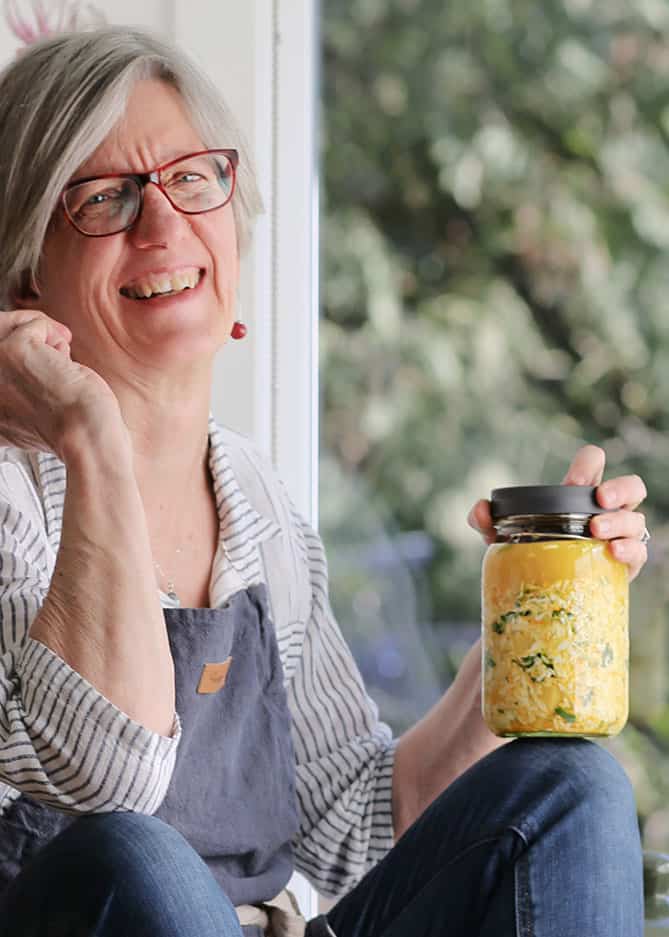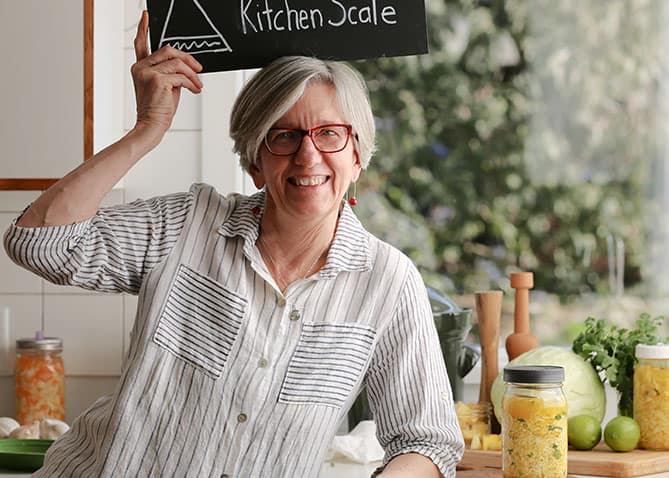How the Health of Your Gut Microbiome Impacts the Health of Your Skin…
We wear it on the outside. It’s our largest organ. It provides waterproofing for our body, regulates our body temperature, guards our body against harsh chemicals, damaging sun and protects us from harmful microbes. Don’t forget this vital functioning organ – your skin – all 22 square feet of it.
Hoping for healthy skin but instead struggling with, and who isn’t:
- Eczema?
- Acne?
- Psoriasis?
- Dermatitis?
- Wrinkles? or just plain ol’
- Dry, dull skin?
Well, it turns out you can have healthy skin without purchasing some expensive magical skin cream full of ingredients you can’t pronounce.
In today’s post, I’ll share with you, 5 proven foods for healthy skin.
First, let’s get started with how the health of your gut impacts the health of your skin.
What you notice about your skin health is a window into the health of your gut for what you see on the surface is impacted by what is hidden deep within your gut.
In fact, as far back as 1930, researchers and dermatologists John H. Stokes and Donald M. Pillsbury suspected a link between the health of the gut and the health of the skin.
Through various trials, they were able to show:
- Beneficial bacteria can improve skin conditions, such as acne.
- Beneficial bacteria can improve psychological conditions, like depression.
- The health of the gut, brain, and skin are interrelated.
Their prescription for healthy skin and improving skin conditions, such as acne?
Consumption of fermented milk – also known as Kefir – and…
Cod Liver Oil!
- Improve Your Gut Health to Zap those Zits
- There is More than Digestion Happening in Your Gut
- Heal this Often Ignored Part of Your Body for Glowing Gorgeous Skin
- 5 Foods to Improve the Health of Your Gut Microbiome… and the Health of Your Skin
- Buy the Right Stuff! FREE Download
- Sauerkraut? Bone Broth? Raw Cultured Dairy? Foods Rich in Omega-3 Fatty Acids? Coconut Oil?
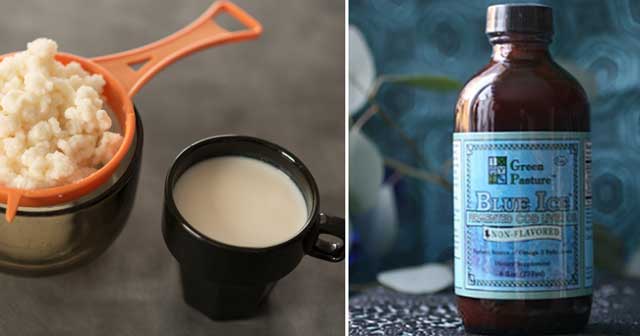 To learn about Kefir, and other foods high in gut-healing beneficial bacteria, see:
To learn about Kefir, and other foods high in gut-healing beneficial bacteria, see:
Fermented Foods ULTIMATE Guide: How to Buy or Make, Ways to Eat & Wonderful Benefits
Cod Liver Oil is addressed in my post: 17 Unexpected but Proven Approaches for Healthy Skin.
This article on the Health Extremist blog may also prove helpful:
Cure Acne in Just a Few Days: How I Finally Cured My Acne
And by the Radiant Life Company: How Do You Take Cod Liver Oil? 12 Tips and Tricks
Improve Your Gut Health to Zap those Zits
Want healthy skin?
Check out these results:
- Bacteria that belongs in your colon can escape and wreak havoc on your skin health.
A 2008 report indicated that SIBO (Small Intestinal Bacteria Overgrowth), a condition where bacteria from the colon grows into the small intestine, where it doesn’t belong, is 10 times more prevalent in people with acne than in healthy controls. The correction of SIBO led to a marked improvement in lesions. - Got Kefir? Kefir. It does a body good.
A recent study in Korea of 56 acne patients found that drinking a Lactobacillus-fermented dairy beverage – which kefir is – significantly reduced their acne lesions and their skin became less oily over the 12-week study period. - Improving gut health with a probiotic supplement improved acne.
In an Italian study, patients receiving probiotic supplements in addition to their standard acne topical treatment experienced better clearing of acne and reduction in symptoms than patients not receiving the probiotics.
If you want to heal your skin you have to heal your gut” – Chris Kresser, chriskresser.com
– Chris Kresser, chriskresser.com
There is More than Digestion Happening in Your Gut
Your gut health is important! And, not just for your skin. How important?
Here’s the deal:
- Your digestive tract, or gut, is home to approximately 100 trillion bacteria and weighs approximately 5 pounds.
This is 10 times as many microbes in your belly as cells in your body. Those bacteria break down food for nourishment and cell repair, fight off invaders and make vitamins, among many other things. - The microbiome in your gut is responsible for roughly 70% of your immune function.
The trillions of little bacteria in your gut work hard to protect you against infection, make vitamins and run your metabolism. - There are more neurons in your enteric nervous system, (the nervous system embedded in the lining of the intestinal tract) than there are in your central nervous system (brain and spinal cord).
“Gut feelings” and “Butterflies in my stomach” make more sense now. - 95% of your serotonin (the neurotransmitter responsible for mood balance) is made in your digestive tract. Source.
Now you know why you feel strong emotions in your gut as well as in your mind. - Your liver gets 70% of its blood flow from your intestines. Source.
So, not only is oxygenated blood flowing to your liver, but also gut bacteria. Italian researchers found between 20-75% of patients with fatty liver disease also had an overgrowth of gut bacteria. - You have 100 times more DNA in your gut microbiome than in the cells of your body.
Heal this Often Ignored Part of Your Body for Glowing Gorgeous Skin
If you are eating a lot of processed foods, not eating foods rich in probiotics, or suffering from stress – and who isn’t – your digestion slows down and the good bacteria in your gut die off.
This sets the stage for the bad guys to move right in.
They take over and create an imbalance in your gut resulting in the wrong pH and the wrong combination of microbes resulting in leaky gut.
Leaky Gut?
Leaky gut happens when your stomach lining begins to thin and the junctions in the intestinal wall start to open up, forming tiny holes. Visualize a fine mesh screen.
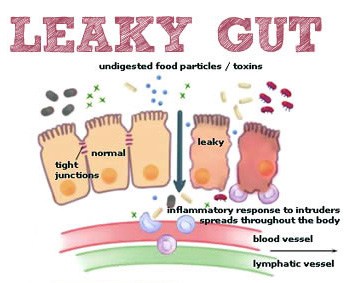
Now, nutrients that we should be absorbing from our foods and toxins that would not normally pass through your gut lining can find their way into our bloodstream, causing a variety of inflammatory conditions, some of which are visible by evaluating the health of your skin.

Look at the left side of this drawing of the intestinal wall:
The junctions are tight and undigested food particles and toxins are unable to pass into the bloodstream.
Look at the right side of the drawing:
The junctions are starting to open up allowing for undigested food particles and toxins to make their way into our blood where they wreak havoc, setting up inflammatory responses throughout the whole body, including unwanted skin conditions.
Now you can understand why slathering all those expensive lotions on your skin may not be working. It could be that your digestive system is not performing up-to-speed resulting in your skin not getting all the nutrients it needs to be healthy.
What to do?
Add gut-healing foods to your diet.
5 Foods to Improve the Health of Your Gut Microbiome… and the Health of Your Skin
Adding gut-healing foods to your diet is the best way to achieve true health. Your skin will love you for it.
Here are 5 foods to get you started:
- Sauerkraut and Other Fermented Vegetables
- Bone Broth
- Grass-fed Dairy
- Foods Rich in Omega-3 Fatty Acids
- Coconut Oil
Check them out and find ONE that you can easily add to your diet. Master that food before moving on to another one. Great things happen one small step at a time.
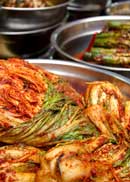
1. Sauerkraut and Other Fermented Vegetables
WHY?
My all-time favorite, of course.
Sauerkraut, Kimchi, pickles and other fermented foods, contain probiotics that introduce healthy bacteria into your gut, and organic acids that help to maintain a healthy intestinal pH.
Through their action in your gut, they promote clear skin and help your body absorb and use the nutrients your skin needs to be radiant.
HOW TO MAKE
To make sauerkraut, you just need cabbage, salt, a jar and lid and time. See how easy it is to make your own sauerkraut:
How to Make Sauerkraut In a Jar in 7 Simple Steps [Healthy, Flavorful, Easy]
WHERE TO BUY
Due to the rise in popularity of fermented foods, it is getting much easier to find a quality, artisanal sauerkraut on your local grocery store’s shelves. Make sure what you buy does not contain vinegar and is refrigerated.
What more information on what to buy?
Click below to download my “Buy the RIGHT! Stuff Sauerkraut Shopping Guide”.
WAYS TO EAT
It’s easy to add sauerkraut to your diet. It’s as simple as adding a few forkfuls of this delicious condiment to your dinner plate or tossing it in a salad. The zippy, tangy taste adds a whole new level of enjoyment to any meal.
Further inspiration:
Buy the Right Stuff! FREE Download
Use the button below to get your own printable Sauerkraut Shopping Guide.

2. Bone Broth
WHY?
Bone broth contains collagen and amino acids that can help heal your damaged cell walls.
Bone broth is also rich in gelatin and the amino acid, proline which work together to support good skin health.
HOW TO MAKE
Bone broth is another inexpensive food for healthy skin. Here are a few recipes if you want to learn how to make your own:
This recipe from the Wellness Mama uses a leftover roast chicken carcass:
For beef broth, check out this recipe from The Kitchn:
Or, if you want something you can hold in your hands, check out this definitive book:
- Fallon Morell, Sally (Author)
- English (Publication Language)
- 352 Pages - 09/30/2014 (Publication Date) - Grand Central Life & Style (Publisher)
WHERE TO BUY
No products found.
Pacific brand bone broth is available in most health-food stores.
Here’s an article on why Pacific is the best store-bought brand:
Other U.S. based companies making bone broth the way your grandmother – or great-grandmother did – that ship domestically:
The Brothery. They using locally-grown, organic produce and free-range, humanely-raised meats and poultry.
Salt, Fire and Time. Traditionally made and deeply nourishing bone broths made from pasture-raised cows, chicken, lambs and turkeys.
U.S. Wellness Meat. Beef, chicken and duck stock along with grass-fed soup-making bones for making your own stock.
HOW TO ENJOY
Drink bone broth by itself. Not everyone is thrilled by its texture and mouthfeel, but give it a try, making sure to add a tad of butter and to lightly salt it.
Soup. There’s no taste comparison to soup brewed with homemade soup stock.
Sauces and Gravies.
Rice. I cook rice with 50% chicken broth and 50% water.
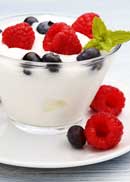
3. Grass-fed Dairy
WHY?
Kefir, yogurt, butter and raw cheeses from grass-fed animals are full of gut nourishing probiotics and high in omega-3s to heal inflammation.
High levels of Vitamin A, Vitamin K2, Vitamin D and Vitamin E work together to deliver numerous health benefits to include better brain function, improved skin health. Grass-fed dairy also contains high levels of conjugated linoleic acid, a compound that can help provide protection against cancer.
What an animal eats impacts the type of fat in its tissues and milk. Grass-fed dairy has more carotenoids, making the butter or cheese appear yellow. Yellow fat is a sign of high nutrient density.
WHAT TO LOOK FOR
Head to your nearest health food store, read labels and ask staff for help. Most health food stores work hard to find quality grass-fed sources of butter, yogurt and cheeses. You should see “grass-fed” on the label.
Trader Joe’s carries KerryGold pure Irish grass-fed butter.
These websites can also put you in contact with farmers that sell grass-fed dairy:
- EatWild
- RealMilk
- U.S. Chapter leaders for the Weston A. Price Foundation
- International Chapter leaders for the Weston A. Price Foundation

4. Foods Rich in Omega-3 Fatty Acids
WHY?
Fatty fish that live in cold waters have high levels of high-quality omega-3s that your skin loves.
Why?
Omega-3 fatty acids regulate oil production in the skin, keeping it supple and hydrated.
Worried about sunburn?
Up your consumption of healthy fats. Omega-3 fatty acids work as anti-oxidants, protecting you from the sun’s harmful rays yet allowing you to enjoy all the goodness our sun provides.
WHAT TO LOOK FOR
Smaller fish – sardines, anchovies and herring – that are lower on the food chain will have much lower levels of heavy metals, than larger fish – tuna and salmon. If you’re buying canned, look for BPA-free cans.
- Sardines
- Anchovies
- Herring
- Salmon
One of my favorites:
- DELICIOUS SARDINES IN WATER- Meaty, and scale-free, WIld Planet's Wild Sardines in Water with...
- CONVENIENCE AND QUALITY- With a convenient pull tab, enjoy these sardines at home or on-the-go...
- NUTRITIONAL POWERHOUSES- One 3 oz serving contains 18 g of clean protein, 1,800 mg of EPA & DHA...
Radiant Life sells dried anchovies. They are delicate and tiny and great for snacking if you don’t mind the “fishy” taste.
Amazon also has dried anchovies. This brand is also small and delicate, like the ones I buy from Radiant Life:
No products found.
WAYS TO EAT
My favorite way to eat canned sardines is in a salad. I toss lettuce with broken up bits of sardines, a chopped hard-boiled egg, grated cheese, salad dressing, and… sauerkraut.
To eat the small dried anchovies – and mask the fishy taste – try sprinkling them on crackers slathered in cream cheese.

5. Coconut Oil
WHY?
The medium chain fatty acids in coconut oil are easier to digest than other fats and are especially good for healing a leaky gut.
The proteins in coconut oil contribute to cellular health and tissue repair, keeping skin healthy and rejuvenated.
Vitamin E, with its antioxidant properties, prevents premature aging and wrinkling of the skin.
WHAT TO BUY
You can go crazy with all the choices on the market today for coconut oil. Let’s try to keep it simple. The best coconut oil is naturally processed and unaltered. You want coconut oil that is:
- Unrefined (You’ll see “Virgin” or “Extra-Virgin” on the label.)
- Organic
- Non-hydrogenated
- Cold-pressed
To read more, see:
What is the Best Coconut Oil Brand to Buy?
My favorite:
- Bulk Coconut Oil for Cooking and Baking – This unrefined coconut oil is the perfect...
- Naturally Nutrient-Rich Coconut Oil for Hair – Apply coconut oil as hair mask for scalp care,...
- Purely Moisturizing Coconut Oil for Skin – Apply to skin as moisturizer for long lasting...
WAYS TO EAT
Eat straight off the spoon. Start with 1/2 teaspoon and work your way up to 1 tablespoon 3 times a day. Great for constipation relief.
Add a spoonful of coconut oil to your coffee or tea for an extra boost of energy.
Use coconut oil for sauteing. Coconut oil is made up of healthy saturated fats that don’t oxidize at high heat.
Other uses? This great list by Dr. Axe is broken into categories – Food Uses, Beauty & Skin Uses, Household Uses, Medicinal Uses – making it easier to find the perfect use for you:
Photo credits: Bone Broth by Jypsygen; Anchovies by Paul Jill.
Sauerkraut? Bone Broth? Raw Cultured Dairy? Foods Rich in Omega-3 Fatty Acids? Coconut Oil?
Pick ONE of these gut-healing foods to add to your diet TODAY. Go out and buy it, or get the supplies to make it, and start improving your gut health AND you skin health now, one delicious bite at a time.
And, once you have incorporated one gut-healing food into your diet, come back here and find another one to add.
Questions on how to get started? Add them in the Comments section below.

Last update on 2024-07-26 / Affiliate links / Images from Amazon Product Advertising API



 This post may contain affiliate links which won’t change your price but will share some commission.
This post may contain affiliate links which won’t change your price but will share some commission.